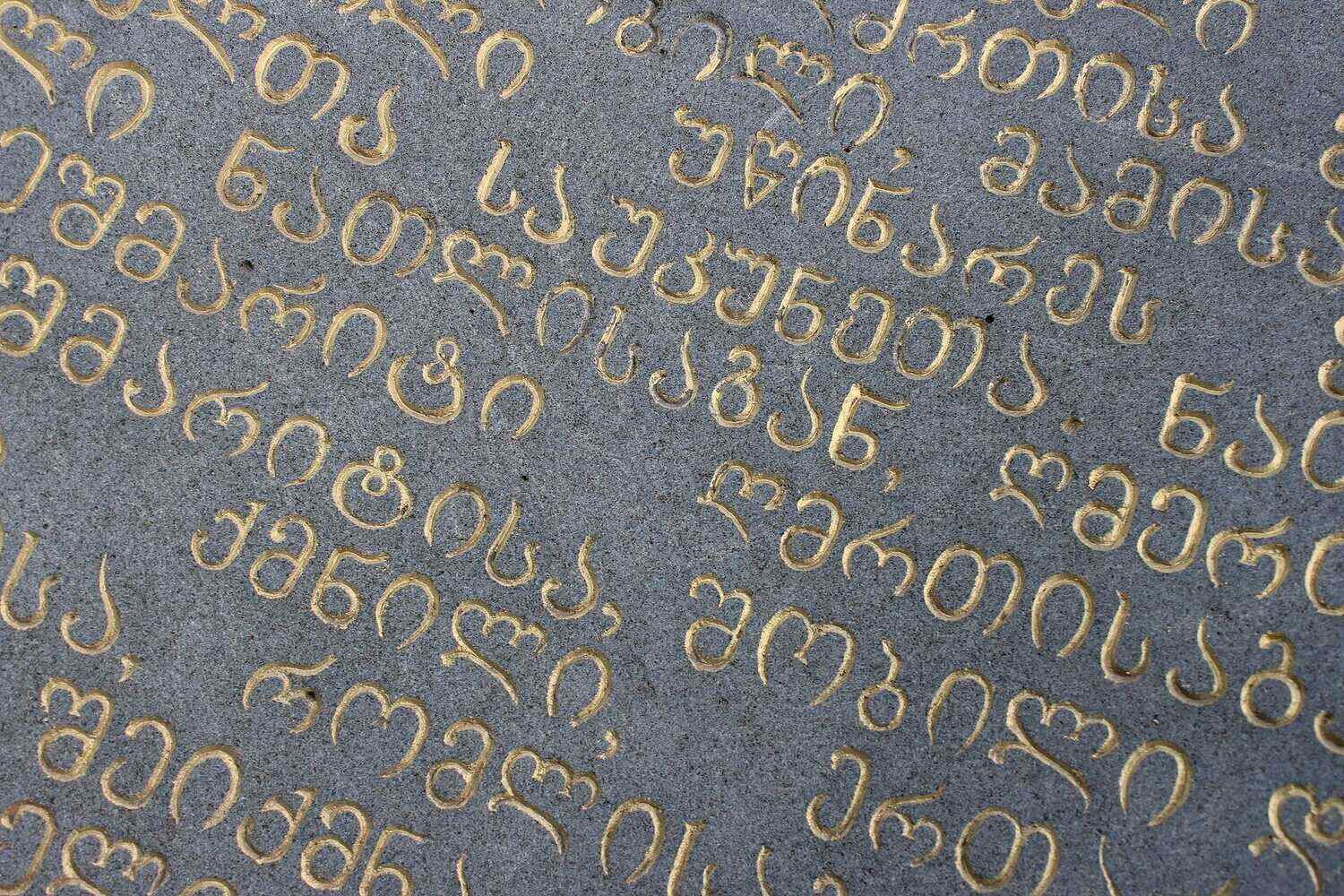12 Astonishing Secrets Of The Georgian Language

Ever wondered about the Georgian language? This ancient tongue holds many surprises. Spoken by over 3.7 million people, it's one of the oldest languages still in use today. Unlike most languages, Georgian has its own unique script, which looks like a series of beautiful, flowing curves. This script, called Mkhedruli, has been used since the 10th century. Georgian grammar and vocabulary are also quite different from what you might expect. For example, it has no gendered nouns, making it simpler in some ways. Ready to learn more? Let's dive into the 12 astonishing secrets of this fascinating language.
Unique Alphabet
The Georgian language boasts a unique alphabet called Mkhedruli. Unlike any other script, it has 33 letters, each with its own distinct sound. This alphabet is a source of pride for Georgians and a fascinating study for linguists.
- Mkhedruli: The modern script used in everyday writing.
- Asomtavruli: An older, majestic script often seen in religious texts.
- Nuskhuri: Another ancient script, used in conjunction with Asomtavruli in religious manuscripts.
Ancient Origins
Georgian is one of the oldest languages in the world, with roots tracing back to ancient times. Its rich history is reflected in its vocabulary and grammar, making it a linguistic treasure.
- Kartvelian Family: Georgian belongs to the Kartvelian language family, which is unique to the Caucasus region.
- Sumerian Influence: Some scholars believe Georgian has connections to ancient Sumerian.
- Medieval Literature: Georgian literature dates back to the 5th century, showcasing its long-standing literary tradition.
Complex Grammar
Georgian grammar can be quite complex, with unique features that set it apart from other languages. Understanding these intricacies can be both challenging and rewarding.
- Cases: Georgian uses seven grammatical cases, each serving a different function in a sentence.
- Verb Conjugation: Verbs in Georgian conjugate based on tense, mood, and aspect, making verb forms highly variable.
- Postpositions: Unlike English, which uses prepositions, Georgian often uses postpositions to indicate relationships between words.
Rich Vocabulary
The Georgian language has a rich and diverse vocabulary, influenced by its history and culture. This makes it a vibrant and expressive language.
- Loanwords: Georgian has borrowed words from Persian, Arabic, Turkish, and Russian, enriching its lexicon.
- Compound Words: Many Georgian words are formed by combining smaller words, creating new meanings.
- Idiomatic Expressions: Georgian is full of idiomatic expressions that reflect its cultural heritage and way of thinking.
The Beauty of the Georgian Language
Georgian language is a treasure trove of unique features and rich history. Its alphabet stands out with its beautiful script, unlike any other. The grammar might seem complex, but it adds depth and precision to communication. Dialects across regions offer a glimpse into the diverse culture of Georgia. Learning Georgian opens doors to understanding the country's literature, traditions, and people.
Idioms and expressions in Georgian are colorful, often reflecting the nation's history and values. The language's evolution over centuries showcases its resilience and adaptability. Whether you're a language enthusiast or planning a trip to Georgia, diving into Georgian can be a rewarding experience. Embrace the challenge, and you'll find yourself appreciating the nuances and beauty of this ancient language.

